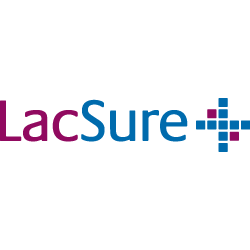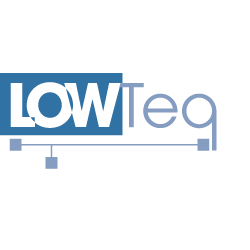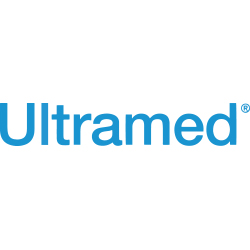
LacSure
LacSure® is a system to provide safe collection, storage and management of mother’s milk at the hospital bedside.
EBM (Expressed Breast Milk), like blood is considered a bodily fluid. When the wrong milk is administered to the wrong patient this can lead to many complications in terms of the emotional and physical risks of virus transmission, not to mention the potential financial cost to the hospital.
LacSure® is a system to provide safe collection, storage and management of mother’s milk at the hospital bedside.
EBM (Expressed Breast Milk), like blood is considered a bodily fluid. When the wrong milk is administered to the wrong patient this can lead to many complications in terms of the emotional and physical risks of virus transmission, not to mention the potential financial cost to the hospital.
These effects are summarised below:
Emotional cost of breast milk errors in parents
- Additional stress to already emotional parents of neonatal patients.
Physical cost of breast milk errors
- Requirement for blood and breast milk samples from each mother concerned.
- The infant may require intramuscular injection of antiviral drugs.
Financial cost of breast milk errors
- Valuable staff time lost due to investigating mis-feed incidents.
- Cost of laboratory sampling required to test for potential virus transmission.
- Cost of prophylactic antiviral medication.
- Potential threat of litigation.
Objectives of the System
The primary objective of the LacSure Breast Milk Management System is to ensure the correct milk is fed to the correct infant. This will be accomplished through Positive Patient Identification (PPI) at the bedside through the use of 2D barcodes and handheld technology.
The system will complement the best practices and processes already followed in hospitals and will allow care givers to work with confidence in administering milk in a busy clinical environment.
The Breast Milk Management system will meet the following objectives and functions.
- To allow for the safe collection and labelling of Expressed Breast Milk (EBM).
- To ensure that the correct unit of milk is fed to the correct infant using barcode and handheld computing technology.
- To save and transfer all data transactions to a centralised database and to allow for full traceability of all electronic transactions.
- To reduce the need for paperwork relating to collection and feed records.
- To track the movement and storage of milk within the clinical area.
- To allow collection units to be split into smaller feed units.
- To alert the user to any discrepancy between the feed unit and the intended patient recipient before the feed commences.
Contact us if you would like further information on LacSure Breast Milk Management solutions or view more of our Critical Care product ranges.

LowTeq
Since 2001 LOWTeq GmbH has supplied innovative and integrative clinical information systems (CIS) solutions.
In the beginning the question was how to make clinical documentation simpler, to gain more time for the essentials. This led to an idea, the idea led to a computer program, and over the course of time this led to a successful company.
Since 2001 LOWTeq GmbH has supplied innovative and integrative clinical information systems (CIS) solutions.
In the beginning the question was how to make clinical documentation simpler, to gain more time for the essentials. This led to an idea, the idea led to a computer program, and over the course of time this led to a successful company.
Process optimisation, transparency, time savings – LOWTeqpdms clinical information systems offers doctors exactly what they need in their daily work.
From premedication and anaesthesia, through all functional areas including instrument monitoring, to the intensive and emergency wards, the LOWTeqanaesthesia, LOWTeqintensive care and LOWTeqemergency modules make captured data available at all workstations, ensuring a consistent information status across all departments.
In addition to automatically captured vital data, LOWTeqpdms documents all medications prescribed as well as all procedures performed, materials used and times. Simple integration into the hospital information system means that this patient data is available for doctors’ letters, transfer reports and billing.
If a patient returns to the hospital or clinic, the existing data and reports can be retrieved quickly and easily.
Contact us if you would like further information on LowTeq or view more of our Critical Care product ranges.

Ultramed
MyPreOp – PreOperative Assessment
Supported for national scaling by the NHS Innovation Accelerator 2020, and winner of the 2019 AAGBI Innovation Award, MyPreOp is our flagship program, and the most popular product in the Ultraprep suite. It is used in the preparation of a patient for an operation where an anaesthetist is going to be present.
MyPreOp – PreOperative Assessment
Supported for national scaling by the NHS Innovation Accelerator 2020, and winner of the 2019 AAGBI Innovation Award, MyPreOp is our flagship program, and the most popular product in the Ultraprep suite. It is used in the preparation of a patient for an operation where an anaesthetist is going to be present.
HOW DOES IT WORK?

When the decision to treat is made, the patient is given a MyPreOp patient card detailing both their hospital’s contact information and concise instructions on how to create their account and access the assessment program.
After creating an Ultramed account using their date of birth and unique NHS number, patients are directed to the Ultraprep landing page and navigate to the MyPreOp program. Here, they complete a comprehensive assessment of their general health and medical history via a straightforward, user-friendly interface. Once the MyPreOp assessment is completed, the patient submits it digitally to the healthcare provider performing their operation as an automatically generated Clinical Summary, to be reviewed by a registered nurse or similarly qualified member of the preoperative assessment team.
The clinical summary report automatically highlights any areas of concern, allowing the pre-emptive identification of any additional tests patients may need as well as flagging up those with complex co-morbidities who will need further face-to-face consultations with the nurse.
Contact us if you would like further information on Ultramed or view more of our Critical Care product ranges.
